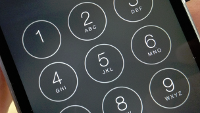U.S. District Court rules that your phone's passcode is protected by the fifth amendment

A District Court in Pennsylvania ruled today, that a passcode that locks a smartphone is protected by the fifth amendment to the constitution. This amendment protects a person from being forced to incriminate him or herself in a criminal case. We've all seen those cheesy Perry Mason episodes or movies where the defendant tells the wily D.A. that he is "pleading the fifth."
The case in Pennsylvania revolves around two Capital One analysts accused of insider trading. The government believed that the evidence of this crime was hidden inside the defendants' phones, and requested that they turn over the passcodes so that the handsets could be unlocked. The employees refused, and the matter became a separate legal issue.
Judge Mark Kearney of Pennsylvania said, "We find, as the SEC is not seeking business records but Defendants' personal thought processes, Defendants may properly invoke their Fifth Amendment right." The two analysts turned $150,000 into $2.8 million using information that they had acquired from their jobs with the bank.
Ironically, constitutional scholar Orin Kerr, said that having the defendants punch in the passcode themselves on their own phones, would eliminate the fifth amendment issue since the actual passcode would not have to be entered into evidence.
source: arstechnica (1), (2) via Phonescoop
Ironically, constitutional scholar Orin Kerr, said that having the defendants punch in the passcode themselves on their own phones, would eliminate the fifth amendment issue since the actual passcode would not have to be entered into evidence.
Follow us on Google News














Things that are NOT allowed:
To help keep our community safe and free from spam, we apply temporary limits to newly created accounts: